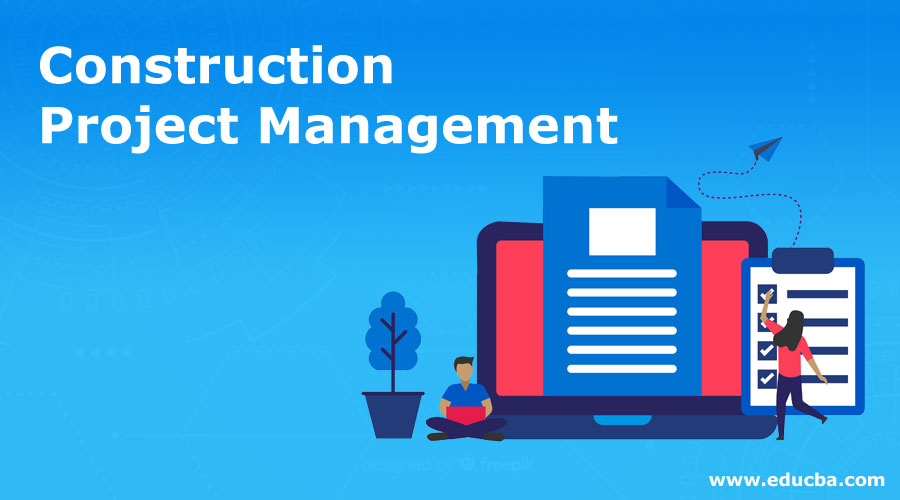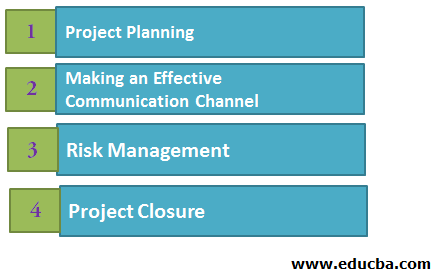
Introduction to Construction Project Management
Construction project management is a different aspect of project management; however, it requires primary management skills and demands continuous monitoring of an environment that is certain to change with time. In a construction project, several factors must be in line with each other to stabilize the project. A project manager is the first person who will hear about the changes first and on the field. Here we will see the different areas of CPM and what are the roles and responsibilities it offers.
What is Construction Project Management (CPM)?
- Construction Project management can be defined as the supervision, guidance, and regulation of a project from an early stage to completion by maintaining effective communication within the project team.
- The main objective is to provide the client with a viable project under the given budget and timeline.
- CPM’s scope is divided into commercial, residential, industrial, and heavy civil.
Roles and Challenges as a Construction Project Manager
The role of a construction manager is challenging and involves a lot of real-time management.

1. Project Planning
In the construction business plan, it is one of the crucial components, and it always starts way before the construction starts and ends with the project completion. Here the project manager needs to revise the plans to continue to meet the end user’s criteria. With project planning comes budget estimation, procurement planning, and design, document maintenance and management, and why is this a crucial phase? Suppose you come across a change in real-time, which is an environmental issue; for that, you need to make a slight change in the design. But remember that even a small change in your planned design will impact your initial design and timeline, for which a continuous revision of planning will be needed. This work needs transparency at each level.
Meticulous project planning sets the stage for success in construction projects by ensuring that every aspect is carefully considered and organized before execution begins. It allows for comprehensive risk assessment and mitigation strategies, ensuring potential challenges are proactively identified and addressed. By allocating resources effectively and establishing clear timelines, meticulous planning minimizes delays and cost overruns, leading to efficient project delivery. In the end, thoughtful planning and careful attention to detail ensure excellent quality and satisfied clients, with projects finished on schedule, within budget, and with superior craftsmanship. According to construction experts at Big Easy Iron Works.
2. Making an Effective Communication Channel
Construction business requires many resources from stakeholders, project managers, site engineers, contractors, daily workers, etc. Therefore, the project needs an effective communication channel that will pass the information to all the team members and make the transitions go smoothly, which will be helpful to the PM to avoid micromanagement.
3. Risk Management
Risk management is a project manager’s role in the planning stage, where the PM needs to address the possible risk factors while developing the action plans from the start. Also, we need to validate each option to mitigate the risk factors during the project action plan. Proper planning of these sections decides the project’s future once it starts. Because no construction project is risk-free, and risk can be minimized, managed, shared, or accepted but cannot be ignored. Let’s take an example: Suppose there is the procurement of raw materials, and it has gone wrong. So at that time, the project manager must have planned enough about the risk and how to mitigate it at that stage. Finaly, exploring what is fleet insurance and what it covers ensures that project vehicles and equipment are safeguarded, reducing potential losses from unforeseen issues like accidents or theft.
4. Project Closure
This is one of the integral parts of construction project management because there is nothing worse than a project which is getting short of timelines after multiple extensions. This doesn’t mean the manager needs to micromanagement, but this also doesn’t mean the manager needs to sit idle without even knowing how the project is progressing. So, therefore, the PM should follow up on the essential tasks. Taking care of the timeline from the beginning, learning to think on the feet, and how to compensate if a task takes longer than assigned.
Apart from the above points, the CPM role offers a few minor things. The project manager needs to be on the constant verge of a learning curve to leverage the project with new strategies and methodologies in the industry. Different software that simplifies project planning, scheduling, and estimation. Similarly, the PM should keenly consider addressing changes in the scope which the client informs. Because sometimes, the client gives something in the middle of a project, and at that time, the project manager needs to learn to say “no” if it deviates from the scope by a large margin. Having an emotional quotient that differentiates good project managers from the avg ones.
“Studies show that when it comes to spending time on human-related activities, about 10% of high-quality project managers spend 60-80% of their work on these factors while average project managers only spend 8-12%.”
Conclusion
Therefore, managing and executing a construction project requires much effort and resources. After reading the above aspects, you will know that there are many things to take care of as a project manager. As a project manager, you must be resourced by keeping yourself updated with upcoming strategies, software, and methodologies. Regarding risk management, as no construction project is risk-free, the higher you map the risks, the better you can close the projects within the timeline.
Recommended Articles
This has been a guide to Construction Project Management. Here we have discussed the basic concept, roles, and challenges of a construction project manager. You can also go through our other suggested articles to learn more –

